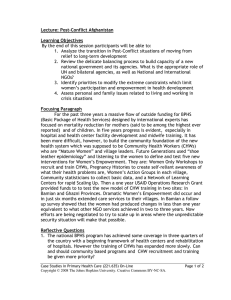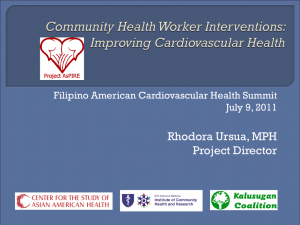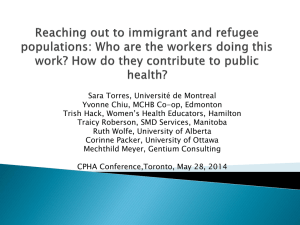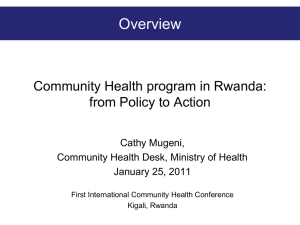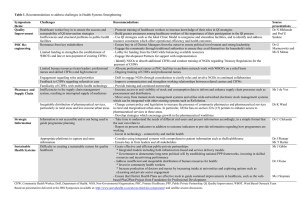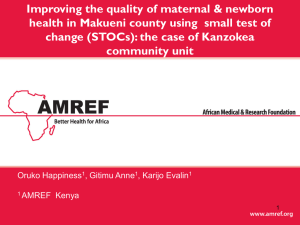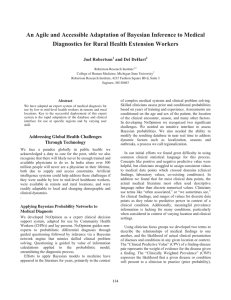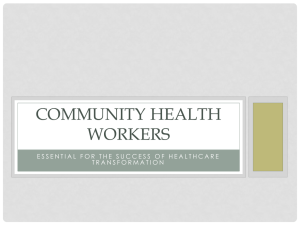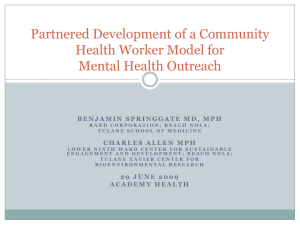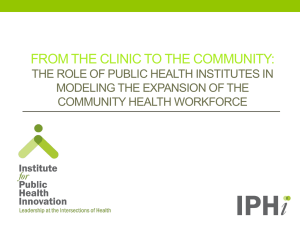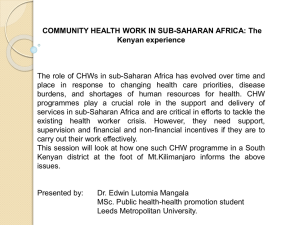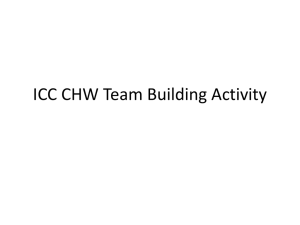Abstract - Countdown to 2015
advertisement
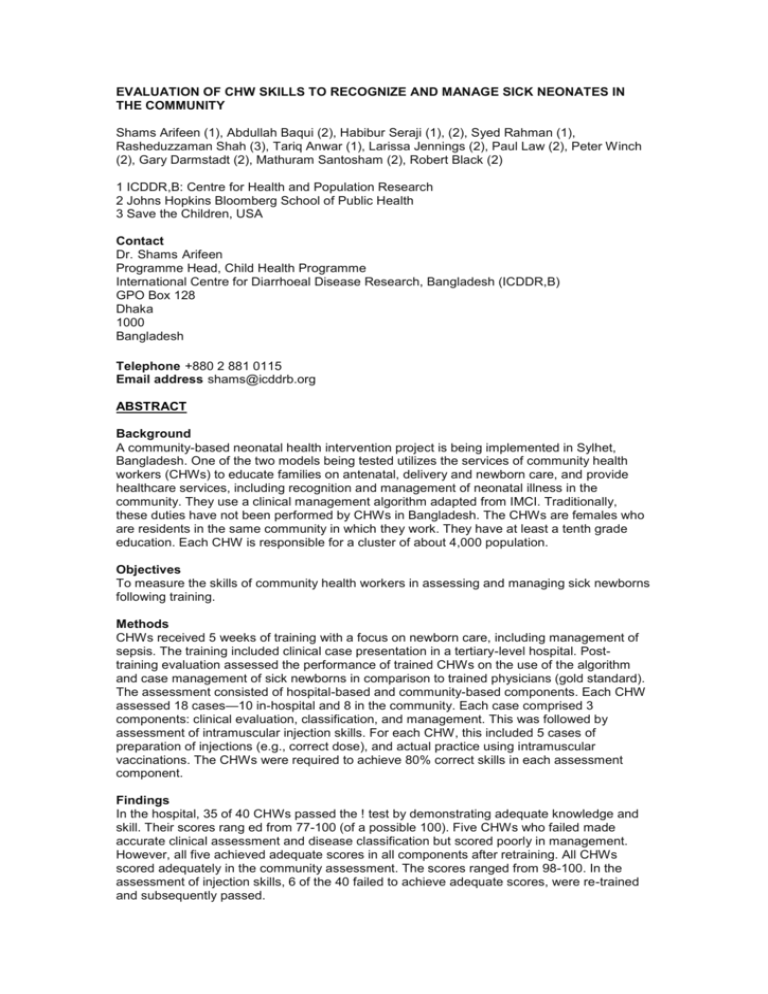
EVALUATION OF CHW SKILLS TO RECOGNIZE AND MANAGE SICK NEONATES IN THE COMMUNITY Shams Arifeen (1), Abdullah Baqui (2), Habibur Seraji (1), (2), Syed Rahman (1), Rasheduzzaman Shah (3), Tariq Anwar (1), Larissa Jennings (2), Paul Law (2), Peter Winch (2), Gary Darmstadt (2), Mathuram Santosham (2), Robert Black (2) 1 ICDDR,B: Centre for Health and Population Research 2 Johns Hopkins Bloomberg School of Public Health 3 Save the Children, USA Contact Dr. Shams Arifeen Programme Head, Child Health Programme International Centre for Diarrhoeal Disease Research, Bangladesh (ICDDR,B) GPO Box 128 Dhaka 1000 Bangladesh Telephone +880 2 881 0115 Email address shams@icddrb.org ABSTRACT Background A community-based neonatal health intervention project is being implemented in Sylhet, Bangladesh. One of the two models being tested utilizes the services of community health workers (CHWs) to educate families on antenatal, delivery and newborn care, and provide healthcare services, including recognition and management of neonatal illness in the community. They use a clinical management algorithm adapted from IMCI. Traditionally, these duties have not been performed by CHWs in Bangladesh. The CHWs are females who are residents in the same community in which they work. They have at least a tenth grade education. Each CHW is responsible for a cluster of about 4,000 population. Objectives To measure the skills of community health workers in assessing and managing sick newborns following training. Methods CHWs received 5 weeks of training with a focus on newborn care, including management of sepsis. The training included clinical case presentation in a tertiary-level hospital. Posttraining evaluation assessed the performance of trained CHWs on the use of the algorithm and case management of sick newborns in comparison to trained physicians (gold standard). The assessment consisted of hospital-based and community-based components. Each CHW assessed 18 cases—10 in-hospital and 8 in the community. Each case comprised 3 components: clinical evaluation, classification, and management. This was followed by assessment of intramuscular injection skills. For each CHW, this included 5 cases of preparation of injections (e.g., correct dose), and actual practice using intramuscular vaccinations. The CHWs were required to achieve 80% correct skills in each assessment component. Findings In the hospital, 35 of 40 CHWs passed the ! test by demonstrating adequate knowledge and skill. Their scores rang ed from 77-100 (of a possible 100). Five CHWs who failed made accurate clinical assessment and disease classification but scored poorly in management. However, all five achieved adequate scores in all components after retraining. All CHWs scored adequately in the community assessment. The scores ranged from 98-100. In the assessment of injection skills, 6 of the 40 failed to achieve adequate scores, were re-trained and subsequently passed. Conclusions It was evident from the assessment exercise that, after training, including clinical practice, a cadre of community-level workers with tenth-grade or better education had adequate clinical skills to assess and manage neonates with serious sicknesses. Policy Implications Female community-based workers can be used to deliver sick newborn case management services in rural areas of Bangladesh where access to such care is otherwise limited. Acknowledgements The financial support of the United States Agency for International Development (USAID) and Saving Newborn Lives Initiative (SNL) of Save the Children–USA through a grant from the Bill and Melinda Gates Foundation, is acknowledged.
